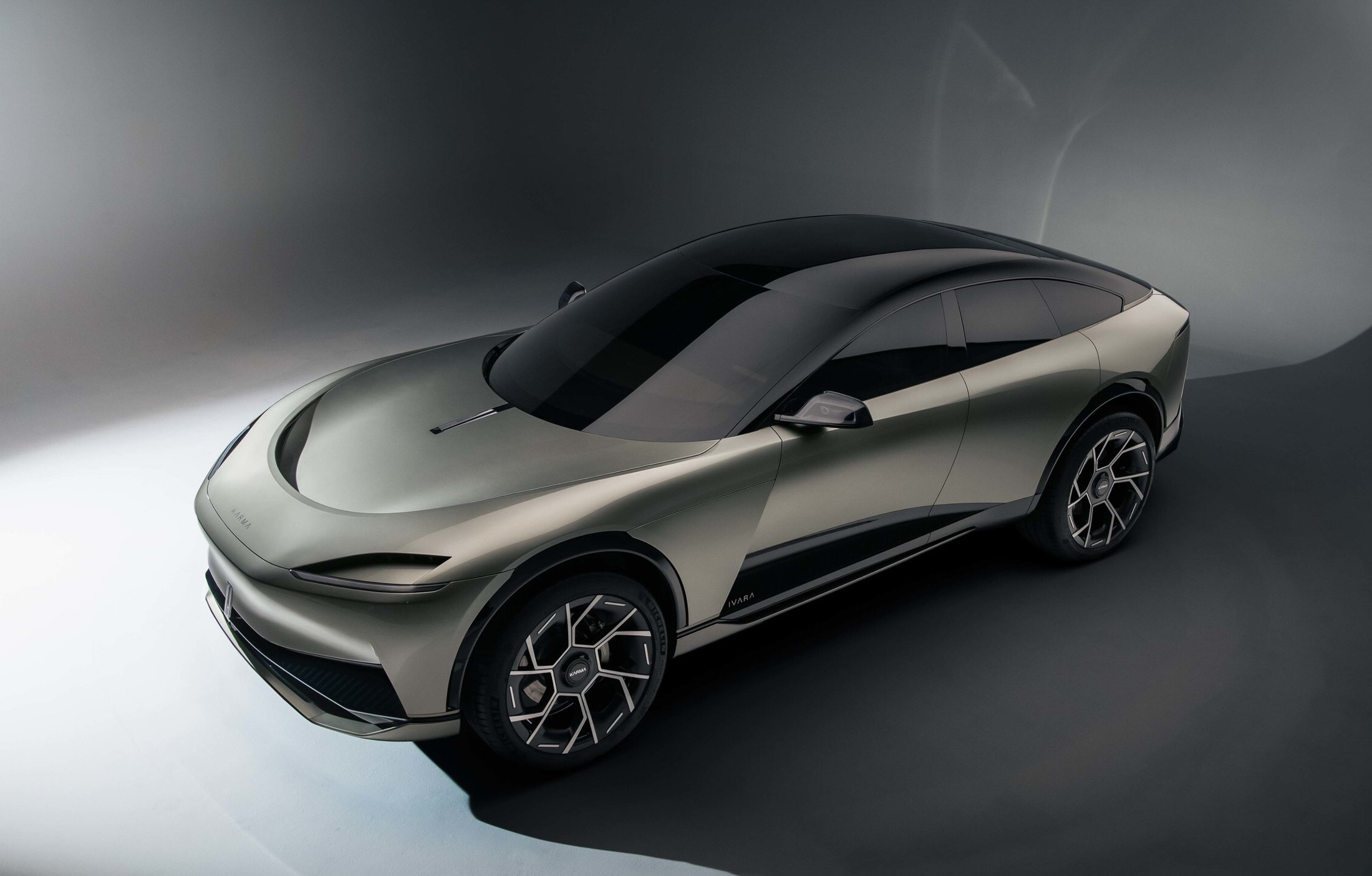- Karma Automotive revealed its first crossover, the Ivara GT-UV design study, at Monterey Car Week.
- Unlike Karma’s upcoming Kaveya coupe and Gyesera sedan EVs, the Ivara could be offered with a choice of electric or PHEV power.
- Karma also unveiled the Kaveya’s production-ready interior and announced a technical collaboration with Intel.
Monterey Car Week was so packed with debuts that one automaker based just down the road struggled to get the exposure it perhaps deserved. That automaker is Karma Automotive, whose Ivara GT-UV is the firm’s first crossover, and an arresting one at that.
Karma has just refreshed its aging Revero hybrid, and in the next couple of years will launch its next-generation models, the Kaveya coupe, which it showed with a production interior at Monterey, and Gyesera sedan. But the Ivara seems likely to have the best chance of success.
Related: New Karma Gyesera Evolves The Fisker Karma Legacy With 590-HP Electric GT
That the Ivara is a crossover immediately makes it more relevant than either the Kaveya or Gyesera at a time when two-door sales are tanking and high-riding cars are continually squeezing sedan market share. But the Ivara’s body shape isn’t the only thing about it that makes it different from the maker’s other future cars.
While the Kaveya and Gyesera will only available with EV power, the Ivara could be offered with a choice of electric or plug-in hybrid tech. We say ‘could’ because the Ivara is only a design study for now, and Karma gave no indication of when a production version might appear, how much power it would make or how far it could travel on electric power.
But it did hint at some genuine off-road intent by revealing that the Ivara’s belly features a protective matte undertray finished with self-healing paint whose microscopic segments enable it to recover from small impacts.
Karma Ivara GT-UV (credit: Karma Automotive)
It also confirmed that any production Ivara would benefit from a new deal between Karma and Intel to co-develop a new electrical architecture. The goal is to come up with one centralized control unit that would handle all of the computing needs on a car, instead of the dozens of independent control units used on most modern vehicles. This Software-Defined Vehicle Architecture (SDVA) will debut on the Kaveya in 2026.
Karma didn’t suggest how much the Ivara would cost if it ever made it to production, but we imagine it would be closer to the $300,000 the automaker wants for the Kaveya (see gallery below) than to the $150k the facelifted Revero stickers at. Karma’s president told Auto News last December that the automaker had received “billions” in investment from its sole shareholder, China’s Wanxiang Group, and was moving upmarket to target McLaren, Aston Martin and Ferrari.













